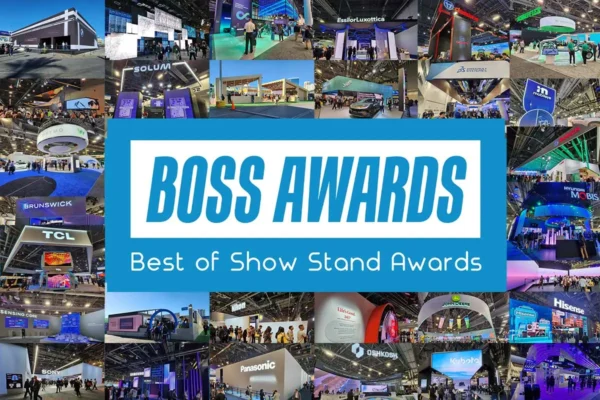Welcome, students. Today we are going to learn how to be more selective in deciphering which tradeshows will best suit your company’s needs; a process that will ultimately and directly impact your bottom line.
While the economy appears to be on a downward spiral, or at the very least, at a stalemate, it is only natural that budgets in almost all areas of business are commensurate with this trend. Tradeshow and exhibition budgets are no exception. Although exhibiting and participating at tradeshows is still an invaluable component of sales and marketing initiatives, it is more important than ever to thoroughly search and seek the most targeted tradeshow opportunities that will generate the best results.
Even companies whose primary marketing expense is geared toward tradeshows have had to become more selective in where to funnel their exhibition dollars.
An effective and efficient targeted tradeshow search involves some work before actually combing search engines and other avenues for the right opportunity.
Where to start: Be positive of preferred prospects
Before embarking on the targeted show-selection journey, be certain to fully define and understand who you are targeting, who your key prospects are and precisely what their needs are. The more comprehensive a prospect profile, the better. In the end, this preparation will save considerable time in your search for the most targeted shows.
Question your motives: A list of Ws
Launch your targeted tradeshow search by first determining the motivation behind your exhibiting and what is it you are trying to achieve. Be sure to have well-considered answers to the following questions before proceeding:
- Which initial goal or overall goals are most important to you? (Examples: New business leads, maintaining business relationships, networking, creating industry exposure, meeting media contacts, branding, etc.)
- In what key industries should you exhibit? (Example: mainstream, niche, etc.)
- In what types of show should you exhibit? (Examples: larger, smaller, expos, regional, etc.)
- Who are your key prospects in each industry?
- At which shows are your competitors exhibiting?
- When is the best time to exhibit? (Depending on product launches, etc.)
Once these questions are answered, you can proceed to actual search.
Tradeshow search engines
The various tradeshow search engine sites are the tradeshow equivalent to traditional search engine sites. Each site will vary in the search options offered, but most provide the ability to define specific details such as industry, month, city, state, country as well as providing the option to search for information on a specific show. Here are a few examples of popular tradeshow search engine sites:
- http://www.tsnn.com
- http://www.eventseye.com
- http://www.thetradeshowcalendar.com
Tradeshow searches on traditional search engines
Since tradeshow search engines rely almost exclusively on show producers posting their shows or staff of the search outfit researching specific opportunities, results and information will vary considerably. Unfortunately, not any given tradeshow search engine will include every tradeshow scheduled, leaving it imperative that you go the extra mile.
Standard search engines, such as Google, Bing, Live and Yahoo, are also valuable tools to supplement your show search efforts. Enter “tradeshow” and keywords for the industry in which you want to exhibit, plus maybe other details such as city and state. The results will usually list multiple pages of show opportunities you may have otherwise missed. Play around a little with keyword search variations for best results.
Industry publications
Industry-specific publications are also always a good resource for finding shows. Many will list industry-wide tradeshows or at the very least, shows they produce themselves. Visit the sites of large media corporations that publish industry publications as they often produce several industry shows per year. Editorial calendars for large media corporations will commonly list shows as well. And of course, take advantage of the show list on tradeshow publication websites.
Industry associations
Industry associations tend to organize at least one annual national or international show in addition to more frequent regional events. Listings can be found on their website’s events page. You can also find regional show listings by visiting event pages on the association’s regional chapter sites. Many industry associations also have sub or peripheral groups that have their own web sites. Don’t just limit your search to the umbrella organization.
Convention centers and visitors bureaus
Listings of shows within particular cities can usually be found on web sites of convention centers and visitor bureaus. Besides the tradeshow calendars, you benefit from additional practical information about the show facility and the city’s attractions, including great places to take vendors, prospects and current customers to dinner or hold small events.
Chambers of commerce
Chambers of Commerce commonly offer table top expos at which their members can exhibit affordably. If you belong to a Chamber, the show information will typically be announced at Chamber events, through announcements and flyers, in monthly newsletters and on their website. Keep in mind, however, that most show attendees are other Chamber members not exhibiting (already aware of your product/services), surrounding community and local businesses. Occasionally, several local chambers collaborate to organize somewhat more regional (larger audience) events.
Competitors
A search method often overlooked is checking out the websites of competitors where they typically publicize and promote the shows at which they will be exhibiting and participating. Keep in mind, there are always advantages and disadvantages of exhibiting at the same show as a competitor. The decision to exhibit should predominantly depend on the previously considered variables.
Homework
- Outline and define a list of Ws (where, what, when, which, why, who)
- Search mainstream and tradeshow search engines for schedules
- Explore alternate avenues for smaller or more niche-related shows
- Register, strategize, execute plan for tradeshow success
About Linda Musgrove, The Tradeshow Teacher
Linda Musgrove is founder and President of TradeShow Teacher, a full-service trade show training and management firm. Through her result-driven formula, she specializes in teaching companies to significantly improve trade show results through strategic, customized trade show management and training for individuals, departments or entire teams. Training options include phone consulting, webinars, seminars and one-on-one in person coaching. Musgrove authored “The Complete Idiots Guide to Trade Shows,” published by Alpha Books/Penguin Publishing. Learn more at http://www.tsteacher.com and follow on Twitter at: http://twitter.com/tsteacher






























